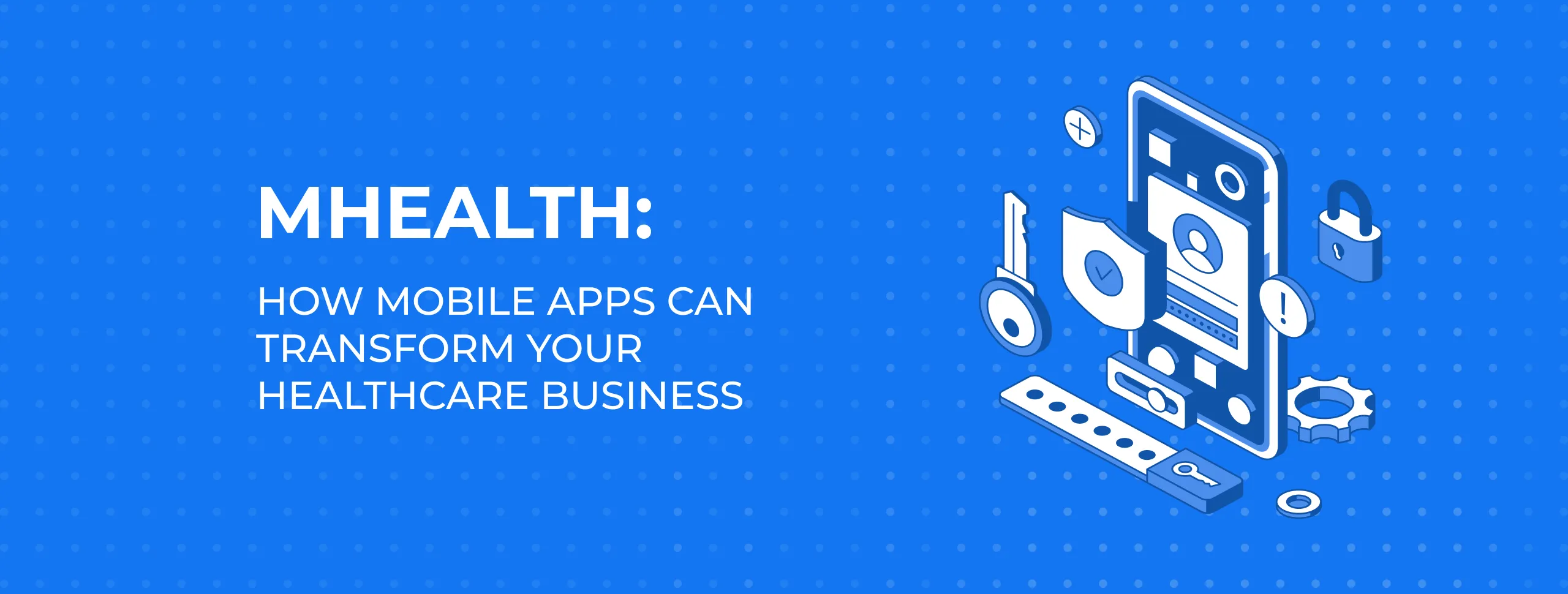
mHealth: How Mobile Apps Can Transform Your Healthcare Business

The latest studies predict that the “global mHealth market could reach $20.7 billion by 2018."
Let’s see how mobile apps can help healthcare businesses establish an efficient workflow and improve the convenience and quality of their services.
Smartphones have become indispensable devices that collect and store huge amounts of data about their owners. This is extremely valuable for medical experts who can use this information to identify health problems and track the patient’s condition. They also empower healthcare providers with tools for a more efficient workflow and better quality of patient care.
Future of Medical Industry
Mobile applications can already be easily integrated into physicians’ workflow, but there are even more possibilities technology can bring to healthcare in the near future.
Mobile devices can be used for in-home diagnostics. Portable X-ray machines, blood-testing kits and ultrasounds will give hospital-level accuracy of diagnosis to people with disabilities or limited mobility, as well as long-term monitoring for any patient.
Implantable medicine delivery devices and smart pills are another promising trend. Pills fitted with a sensor so small they can be swallowed are activated once they enter the patient's stomach. They transmit data about the status of the internal organs and how the body reacts to the course of medication and changes in dosage to a mobile application. Implantable chips in turn can automatically release the necessary dose of medication, measuring different parameters such as blood sugar level.
How Can Mobile Apps Increase a Medical Centre’s Productivity?
Mobile technologies provide for a higher quality of care services to medical centre patents, but also help healthcare companies establish a time and cost efficient workflow. Check out the long list of operations mobile technologies can assist your healthcare business with.
- Appointment scheduling. Allowing patients to schedule appointments via a mobile app and notify doctors about upcoming or cancelled consultations results in better time management and minimises downtime.
- Patient consulting and communications. Smartphones and tablets offer multiple means of communication such as text, voice calls, video conferences and multimedia messages, solving the problem of dispersion of healthcare facilities that include clinics, laboratories, inpatient wards, outpatient services, operating theaters, intensive care units and emergency departments. With a mobile app, your doctors no longer need to spend time and money traveling between various medical centers.
- Patient condition monitoring. Ongoing monitoring of heart rate, blood pressure, body temperature, physical activity and other essential parameters allows doctors to identify even the slightest changes in a patient's health condition, establish a more accurate diagnosis and quickly respond to emergencies.
- Health record maintenance. Store data about your patients in a secure system with easy access. It facilitates your medical centre’s workflow by providing quick access to information on any given patient and a full medical records history in one click, and improves the accuracy of patient documentation thanks to clear diagnostic coding and more frequent recording of a medication’s side effects.
- Improved efficiency. Mobile apps provide healthcare experts with more efficient access to reports, lab test results, guidelines and other documentation, leading to fewer errors, improved workflow patterns and more complete records.
- Information and reference gathering. With mobile devices, physicians can search for information about medicines such as names, ingredients, dosages, cost, pharmacology and interaction, as well as calculate the right dose for a particular patient via a built-in weight calculator to make informed decisions about treatment and minimise the risk of human error.
To sum it all up, by adopting mHealth apps your healthcare business can take advantage of the following benefits:
- Improved workflow efficiency
- Eliminated paperwork
- Accurate calculation of expenditure for every patient
- Minimised costs on workflow management
- Effective medicine supply
- Increased branding
- Full transparency of healthcare services
- Reduced patient mortality rate
If you are looking to enhance your medical centre’s productivity, integrate valuable patient and business data into a single system and minimise your company's expenses, Magora’s experts are here to help you reap the benefits of these opportunities. We have a solid background in designing digital solutions for medical care providers and will be happy to contribute our expertise to your healthcare business.





